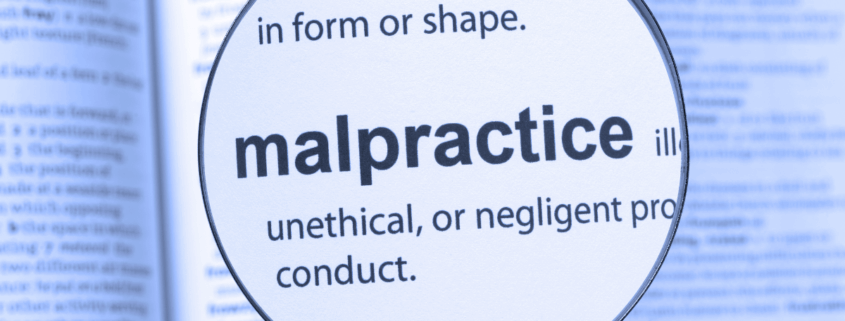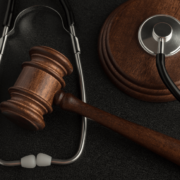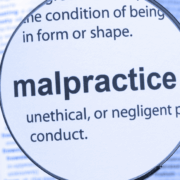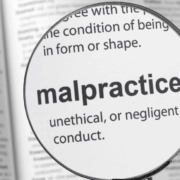From Medical Gaslighting to Malpractice: What West Virginia Patients Need to Know
The journey through healthcare should be one of partnership and trust between patient and provider. Yet, for too many individuals, it becomes a bewildering experience where their genuine health concerns are brushed aside or unfairly questioned. This phenomenon, known as medical gaslighting, can leave patients feeling confused, invalidated, and, most alarmingly, can lead to significant physical harm. When such dismissals result in delayed diagnoses or improper treatment causing injury, it can escalate beyond poor bedside manner into the realm of medical malpractice.
Medical Malpractice in West Virginia: When Gaslighting Crosses the Line
While medical gaslighting is deeply problematic, it transitions into the legal arena of medical malpractice when a provider’s dismissive behavior leads to a failure in delivering appropriate medical care, directly causing harm to a patient.
Defining Medical Malpractice in West Virginia
In West Virginia, medical malpractice, also referred to as medical negligence, is legally defined as a healthcare provider’s failure to meet the professionally recognized “standard of care” in treating a patient, and this failure directly results in injury or death. It is essential to note that not every unfavorable medical outcome is malpractice. Medicine is an inherently complex field, and complications can arise even with the best care. For malpractice to exist, there must be a demonstration that the healthcare provider – whether a doctor, nurse, surgeon, or hospital – acted (or failed to act) in a way that a reasonably prudent and skillful provider in the same medical field, within the same geographic area or similar circumstances, would not have. The focus is on whether the care provided fell below this accepted professional benchmark.
The Link Between Gaslighting and Malpractice
Medical gaslighting can be a significant precursor to, or a direct component of, medical malpractice. When a provider consistently dismisses a patient’s legitimate health concerns, they may fail to order necessary tests, make appropriate referrals to specialists, or consider crucial diagnostic possibilities. This failure to investigate properly, fueled by a dismissive attitude, can directly lead to a misdiagnosis, a delayed diagnosis of a serious condition, or the complete failure to diagnose an illness. If this deviation from accepted medical practice – a deviation rooted in not taking the patient seriously – results in tangible harm, such as the progression of a disease to an incurable stage or the need for more invasive and costly treatments, then medical gaslighting has contributed to actionable malpractice.
Proving Malpractice in West Virginia: The Four Elements
To successfully pursue a medical malpractice claim in West Virginia, the injured patient (the plaintiff) or their legal representative must typically prove four key elements:
- Duty of Care: This establishes that a formal doctor-patient relationship existed at the time of the alleged negligence. This means the healthcare provider has accepted the responsibility to provide medical care to the patient according to established medical principles.
- Breach of Duty: This involves demonstrating that the healthcare provider failed to meet the accepted standard of care. This means their actions, or inactions, were not what a reasonably competent and skilled medical professional in the same specialty would have done under similar circumstances. Dismissing symptoms that a reasonable doctor would investigate further can constitute such a breach.
- Causation: This is a critical link. The plaintiff must prove that the healthcare provider’s breach of duty was a direct and proximate cause of the patient’s injury or harm. It must be shown that, more likely than not, the harm would not have occurred, or would have been less severe, if the provider had adhered to the standard of care.
- Damages: The patient must have suffered actual, demonstrable harm as a result of the provider’s negligence. These damages can be physical (e.g., worsening of condition, disability, pain), emotional (e.g., distress, anxiety), and financial (e.g., additional medical bills, lost income, future care costs).
The Role of Expert Testimony and the Certificate of Merit in WV
Medical malpractice cases are inherently complex because they involve specialized medical knowledge. In West Virginia, as in most states, expert testimony is almost always required to prove a malpractice claim. A qualified medical expert, typically practicing in the same field as the defendant provider, is needed to explain to the court what the applicable standard of care was in the specific situation, how the defendant provider deviated from that standard, and how that deviation caused the patient’s injuries.
Furthermore, West Virginia law (specifically WV Code §55-7B-6) mandates a “screening certificate of merit” requirement. Before a medical malpractice lawsuit can even be filed, the plaintiff must obtain a written opinion from a qualified health care provider. This expert must have reviewed the relevant medical records and concluded that there is a reasonable basis to believe that the standard of care was breached and that this breach resulted in injury or death. This certificate must be filed along with the “notice of claim.” This procedural step is designed to prevent frivolous lawsuits, but also adds another layer of complexity for patients seeking justice.
Legal Recourse for West Virginia Patients: Navigating Your Options
If you or a loved one in West Virginia has suffered harm due to what you believe was medical negligence potentially stemming from gaslighting, there are specific legal avenues and requirements to be aware of.
Statute of Limitations in West Virginia
One of an attorney’s first considerations in a potential medical malpractice case is the statute of limitations – the legal deadline for filing a lawsuit. In West Virginia, under WV Code §55-7B-4, a medical malpractice action must generally be commenced within two years from the date the injury occurred, or two years from the date the injury was, or reasonably should have been, discovered by the patient (this is often called the “discovery rule”).
However, there’s also an overarching deadline called a “statute of repose,” which states that in no event shall any such action be commenced more than ten years after the date of the actual injury, regardless of when it was discovered.
There are slightly different rules for specific situations:
- For claims against nursing homes, assisted living facilities, or certain hospital units providing skilled nursing care, the statute of limitations is one year from the date of injury or its reasonable discovery.
- For injuries to minors (children under the age of ten at the time of injury), the lawsuit must be filed within two years of the date of injury or before the child’s twelfth birthday, whichever period is longer. Missing these deadlines can mean losing your right to pursue compensation, making timely consultation with an attorney extremely important.
The Notice of Claim Requirement
As touched upon earlier, West Virginia law (WV Code §55-7B-6) requires that at least 30 days before filing a medical malpractice lawsuit, the claimant (the patient or their representative) must send a “Notice of Claim” to each healthcare provider they intend to sue. This notice must be sent via certified mail with a return receipt requested.
The Notice of Claim must include:
- A statement of the theory or theories of liability upon which the claim is based.
- A list of all healthcare providers and facilities receiving the notice.
- The aforementioned “Screening Certificate of Merit” signed by a qualified medical expert. This pre-suit notification process is a mandatory step, and failure to comply precisely with its requirements can lead to the dismissal of a subsequently filed lawsuit.
Types of Recoverable Damages in West Virginia
If a medical malpractice claim is successful, the injured patient may be entitled to recover damages to compensate for the harm they have suffered. These damages typically fall into two main categories:
Economic Damages: These are tangible, quantifiable financial losses. They can include:
- Past and future medical expenses (hospital bills, doctor visits, medication, therapy, rehabilitation).
- Lost wages and loss of future earning capacity if the injury prevents the patient from working or reduces their ability to earn.
- Costs of home care or assistive devices.
Non-Economic Damages: These compensate for intangible losses and are more subjective. They can include:
- Pain and suffering (physical pain, discomfort).
- Emotional distress, mental anguish, anxiety, depression.
- Loss of enjoyment of life (inability to participate in hobbies or activities).
- Loss of consortium (impact on the marital relationship).
West Virginia patients need to be aware that state law (WV Code §55-7B-8) places caps on non-economic damages in medical malpractice cases. Generally, this cap is $250,000 per occurrence. However, this cap can increase to $500,000 per occurrence in cases involving wrongful death, permanent and substantial physical deformity, loss of use of a limb or a bodily organ system, or permanent physical or mental functional injury that prevents the person from independently caring for themselves. These caps are subject to periodic adjustment for inflation.
The Importance of Legal Representation
Medical malpractice law in West Virginia, as demonstrated by the requirements for expert testimony, Certificates of Merit, Notices of Claim, and strict statutes of limitation, is exceedingly complex. Healthcare providers and their insurance companies have significant resources and experienced legal teams to defend against these claims. For an individual patient, navigating this system alone is a monumental task.
An experienced medical malpractice attorney can provide invaluable assistance by:
- Thoroughly investigating your claim and gathering all necessary medical records.
- Consulting with qualified medical experts to assess the merits of your case and obtain the required Certificate of Merit.
- Ensuring all pre-suit requirements and legal deadlines are met.
- Building a strong case by developing evidence of duty, breach, causation, and damages.
- Negotiating with insurance companies on your behalf.
- Skillfully litigating your case in court if a fair settlement cannot be reached.
- Advocating fiercely for your rights and best interests throughout the entire process.
Empowering Yourself: What West Virginia Patients Can Do When Facing Medical Challenges
While legal recourse is available after harm has occurred, empowering yourself during your healthcare journey is key. If you are a patient in West Virginia feeling unheard or concerned about your care, here are proactive steps you can take:
Trust Your Instincts
You live in your body every day. If you feel that something is wrong or that your symptoms are not being adequately addressed, trust that feeling. While it’s important to listen to medical advice, your intuition about your own health is a valuable tool. Do not let anyone make you feel that your concerns are illegitimate without a thorough and respectful evaluation.
Document Everything Meticulously
Keep a detailed journal of your symptoms: what they are, when they started, how frequent they are, what makes them better or worse, and their intensity. Record dates of all medical appointments, the names of providers you saw, what was discussed, any tests ordered (or refused), and treatments prescribed. Keep copies of all correspondence, test results, and medical bills. This documentation can be invaluable, both for your ongoing care and if legal questions arise later.
Ask Questions and Seek Clarification
Never hesitate to ask questions until you fully grasp your medical situation. If you don’t accept a diagnosis, ask what else it could be. If you don’t follow a treatment plan, ask for a simpler explanation or for alternatives. You have a right to be an informed participant in your healthcare decisions. A good provider will welcome your questions.
Bring a Support Person to Appointments
Whenever possible, bring a trusted friend or family member to your medical appointments. They can provide emotional support, serve as another pair of ears to help remember important information, ask questions you might not think of, and advocate on your behalf if you are feeling overwhelmed or dismissed.
Do Not Hesitate to Seek Second Opinions
If you have doubts about a diagnosis, feel your concerns are being ignored, or are uncomfortable with a proposed treatment plan, you have every right to seek a second opinion from another qualified healthcare professional. A good doctor will not be offended by this; in fact, many welcome it for complex cases. Seeking another perspective is a sign of an engaged and proactive patient.
Know Your Rights as a Healthcare Consumer in West Virginia
As a patient in West Virginia, you have certain rights. These include the right to respectful care, the right to information about your condition and treatment options (informed consent), the right to refuse treatment, the right to privacy of your medical information (HIPAA), and the right to access your medical records. Familiarizing yourself with these rights can help you advocate more effectively for yourself. Many hospitals also have patient advocates who can assist if you encounter problems.
When to Consider Legal Action for Medical Negligence in West Virginia
While self-advocacy is vital, there are times when the harm experienced is too great and may be the result of medical negligence. It might be appropriate to consult with a medical malpractice attorney in West Virginia if you believe that:
- You experienced persistent medical gaslighting that directly led to a delayed diagnosis, misdiagnosis, or improper treatment.
- As a direct result of this failure in care, you suffered a significant physical injury, a substantially worsened medical condition, or severe emotional distress.
- You are now facing considerable medical expenses, lost income, or the need for long-term care due to these medical errors.
- A loved one has tragically passed away, and you suspect that dismissed medical concerns and subsequent negligence played a role.
Were You Harmed Because Your Healthcare Concerns Were Ignored? Speak to Bailey, Javins, & Carter, L.C. Today
If you feel that your voice was ignored by a healthcare provider and this led to serious harm, we invite you to reach out. The dedicated legal team at Bailey, Javins, & Carter, L.C. has a long history of representing individuals and families across West Virginia who have been impacted by medical negligence. We see the devastating consequences when patients are not heard, and we are committed to holding responsible parties accountable. We offer a confidential, no-cost consultation to review the details of your situation and discuss your potential legal options. Our firm is dedicated to providing compassionate support and tenacious legal representation to seek the justice and compensation you rightfully deserve.
Contact Bailey, Javins, & Carter, L.C. today to schedule your free case evaluation. Let our experience guide you.












